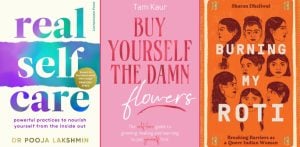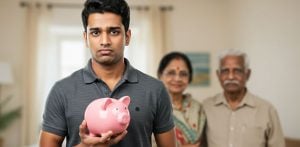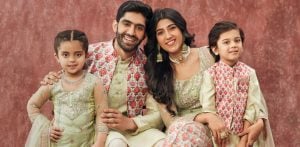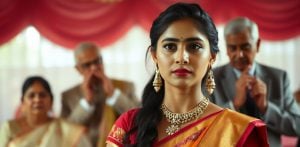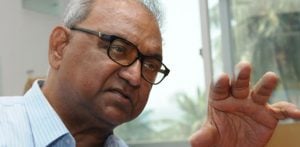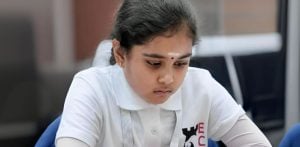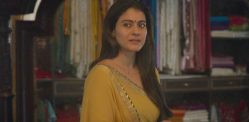“For them, these things are bad, unclean topics.”
Sex and sexuality remain profoundly personal and contentious topics, with Desi views varying across and even within generations.
For those from Pakistani, Indian and Bangladeshi backgrounds, there can be some discomfort around issues of sex and sexuality.
In South Asian families, can different generations speak to each other about sex and sexuality or do generational divides stop conversations?
Socio-cultural ideals and norms, as framed and reinforced in each generation, influence attitudes and perspectives. This, in turn, shapes whether conversations can occur.
Understanding generational differences within these communities is essential for comprehending views and feelings on sex and sexuality. Mental health care providers like BetterHelp can help you understand these better.
DESIblitz looks at what generational differences there are when it comes to Desi views around sex and sexuality.
Conservative Attitudes from Older Generations
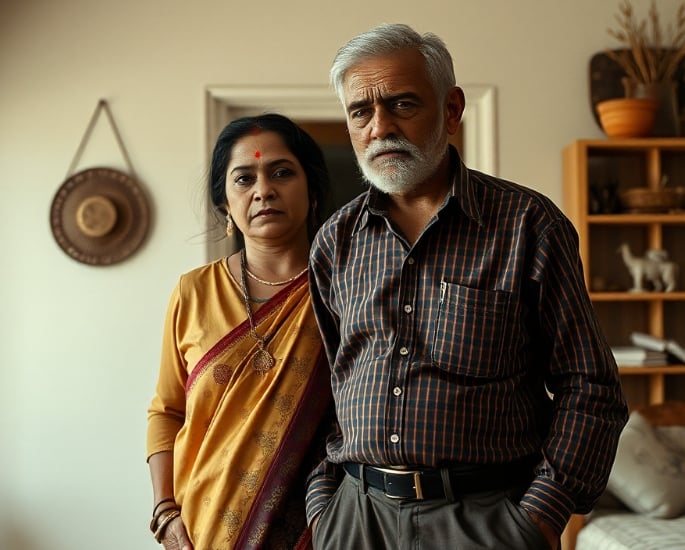
For many older South Asians, conversations about sex and sexuality are shrouded in the shadows and silence.
Attitudes are deeply influenced by conservative cultural and religious values that emphasise modesty and the sanctity of marriage.
People typically consider sex private and, from a traditional standpoint, associate it with marriage.
Moreover, female sexuality and engagement with sex are tied to ideas of purity and family honour.
As a result, Desi communities often view issues encompassing sex and sexuality, including sexual health and desire, as highly taboo.
Amina*, a 50-old British Indian, emphasised the need for change in older generations and Desi communities more broadly:
“Discomfort and unease are huge. It was the same for me; I learned it from my parents, and I’m sure my parents learned it from my grandparents.
“But I forced myself to change my thinking and attitudes for my children.
“Forced myself to change so we can have open talks, but still differences in how we think.”
“But my sisters, only three years apart in age, still think old-school. They asked me not to say anything to their children.
“I am different to my elders in I don’t think sex is only in marriage; fair few second-generation Indians like that. You just didn’t say anything.”
Amina’s words highlight that change is possible, and there are differing attitudes even within generations.
For 26-year-old Bengali Sonia*, there has always been a clear difference in generational attitudes to sex and sexuality:
“Not just Bengalis but across Asians worldwide, I think mostly it’s a red zone; no one goes into it.
“Some changes, but I think attitudes are different across generations.
“Older generations, from my experience, won’t go there, making speaking painfully hard or, in my case, growing up impossible.
“My grandparents, no way. My dad never, and my mum said the bare minimum.
“For them, these things are bad, unclean topics. Me and my friends, it’s different, but feel the effects of my family.”
For Sonia, there are stark generational differences in attitudes to sex and sexuality.
Such differences have meant she has had to “unlearn feeling shame for having questions and speaking openly”.
Generational differences in Desi attitudes toward sex and sexuality can create tension and unease.
However, Amina’s words demonstrate that intentional effort and dialogue make change possible.
Desi Attitudes on Sex and Premarital Sex

Sex and premarital relationships remain sensitive topics in Desi communities. Family and socio-cultural attitudes on what is appropriate and what is not continue to matter.
Traditional socio-cultural and religious values reserve sex exclusively for marriage.
45-year-old British Pakistani Iram* asserted:
“I get from our religious and cultural point that sex is for marriage, but the attitude of that meaning no conversations is bad.
“That’s how my parents saw it and my brothers, so I went into my first marriage blind.
“With my kids, sex before marriage is talked about.
“I also don’t think it’s an issue… having sex before marriage. I think it should be a choice that isn’t judged.
“Here, I’m going against the grain not just for my generation but also most of the younger lot in my family.”
“Going against the grain when it comes to women. I’m not saying it should be advertised, but women knowing nothing about their needs is bad.”
For Iram, opening up conversations about sex with her children was crucial to breaking generational taboos and ensuring they were knowledgeable.
Iram also believes that it is essential for Desi communities to acknowledge that women have sexual desires and that this is “normal”.
In turn, Yash*, from India, currently studying and working in the UK, revealed:
“My parents were very open, and that has shaped me and my siblings. My family is the odd one out in a good way.
“But there is still a mentality across the age groups that sex is not to be talked about.
“For younger generations, sex happens; we know it, but it’s not acknowledged. For most, it would be denied if parents or elders asked.
“Also, the rules for men and women are different. If women are as active as men, they are seen by many as sl***.
“That attitude persists in all ages, communities and across cultures.”
Yash’s words show that even as changes occur, tensions exist. Younger generations stay silent or do not have open conversations due to the attitudes of parents and “elders.”
Also, a persistent gender divide and bias is that society still harshly judges women’s sexual activity and expression.
Desi Attitudes towards Sexuality
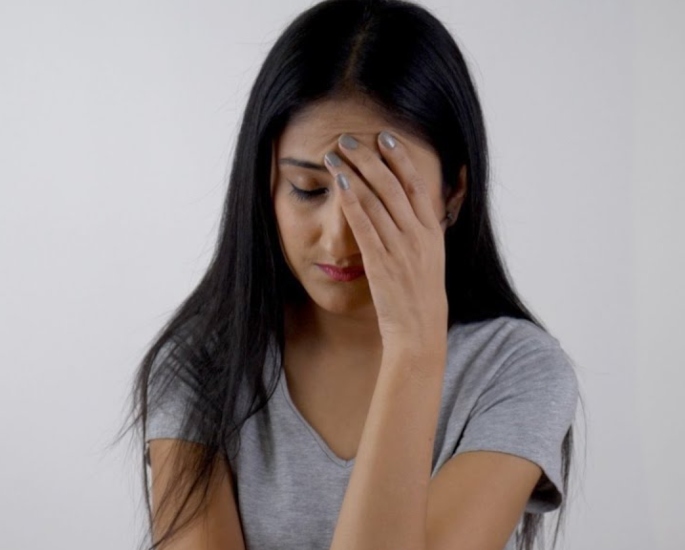
Socio-cultural expectations play a significant role in shaping experiences and feelings towards sexuality.
In many Desi communities, traditional gender roles and expectations prioritise the needs and desires of men.
From a socio-cultural standpoint, for ‘good’ women, sexual satisfaction and sexuality are invisible topics.
Accordingly, Desi women can feel pressure to conform to cultural ideals of modesty and being a ‘good woman’.
Iram stressed: “Sexuality and sexual identity was and still is seen as something upstanding women don’t engage with.
“But it’s a natural part of life for men and women.
“There have been changes, but the cultural badness of it means most Asians, even the kids, whisper.”
Similarly, Maz, a 34-year-old British Pakistani, said:
“Sexuality… It’s not something we talk about. I haven’t had to think about it hard. Maybe it would be different if I wasn’t straight.
“My parents and uncles would be on lockdown if I wasn’t.
“Nowadays, for a lot of people my age in the West, it’s more of an attitude that ‘everyone lives life. Only Allah can judge’.
“We’re more like ‘don’t throw it in other people’s faces’. Although homophobia is there, I don’t think it’s as violent as in the past.”
For Maz, there has been an overarching shift in generational attitudes for South Asians in the West.
Moreover, 25-year-old Rani*, an Indian woman, asserted:
“I support LGBTQ+ rights, and my closest friend is bisexual; my parents are good with her. But for my parents, it’s something they don’t get. Dad once said, ‘It’s a phase’.
“Mum thinks it’s ‘Western influence’, it’s frustrating. Not everyone from their age group is like that, but lots are, or they’re worse.
“My mum and uncle are one year apart, and he told my cousins that ‘they’re welcome to be whoever they are’. My parents didn’t.”
Rani highlights the tensions and differences that can exist in attitudes.
Heterosexuality has a privileged and assumed natural position in Desi cultures, leading to challenges for those who identify as LGBTQ+.
The increasing visibility of LGBTQ+ South Asians in the media and activism is crucial in helping change views and raise awareness.
Generational differences in Desi attitudes toward sex and sexuality reveal the influence of socio-cultural and religious expectations.
Older generations often remain conservative. Yet younger generations gradually challenge taboos and advocate for open dialogue to varying degrees.
Iram and Amina illustrate that attitudes differ even within generations, and some continuously attempt to change the status quo.
Moreover, attitudes in one generation impact subsequent generations emotionally and psychologically.
Even where Desi individuals are trying to dismantle and change unequal and repressive attitudes, shame and unease can manifest. What families and communities generationally transmit causes this shame and unease.
Accordingly, older generations matter in conversations and steps taken to foster change.
There is a need for continued conversation to bridge gaps, foster understanding, and create healthier attitudes toward sex and sexuality.
Open discussions help women and men across generations feel empowered and confident.
It also ensures they have access to accurate information and resources to navigate issues and challenges related to sex and sexuality.





